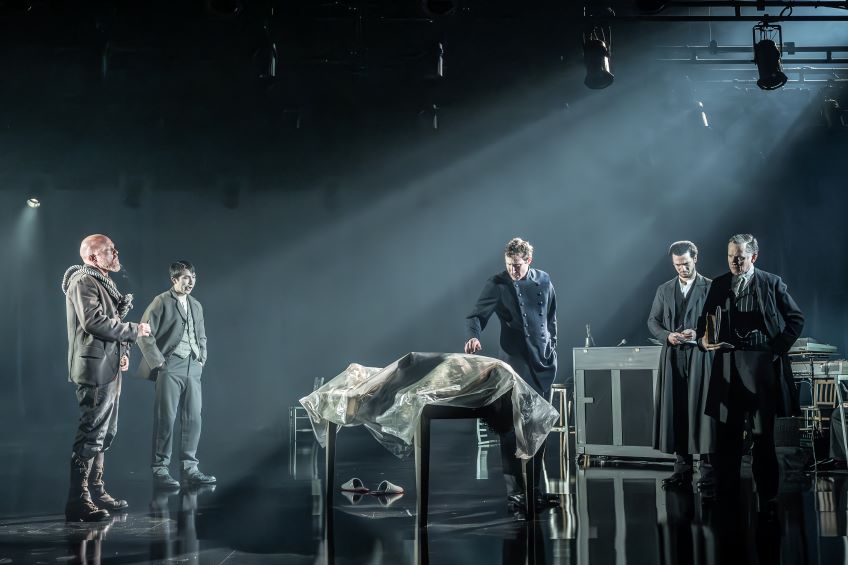Charles Dickens’s novels were so popular in the 19th century they were pirated and staged before he had even finished writing them. Victorian readers and theatregoers loved the melodrama.
In the 20th century, the novels have often been successfully filmed and serialized on television. There have been memorable performances of Oliver Twist, Great Expectations, Bleak House, A Christmas Carol and many more. The Lionel Bart musical, Oliver! is constantly revived.
An outstanding stage adaptation was the RSC’s marathon 8-hour 40-minute production of Nicholas Nickleby spread over two evenings. Directed by Trevor Nunn and John Caird in 1980, it brilliantly captured Dickens’s teeming world.
London Tide is an adaptation of Our Mutual Friend, Dickens’s complex, sprawling final novel, published in 1865, which has never been among his popular works. Ben Power’s adaptation ignores the savage satire and concentrates on the River Thames and two love stories.
John Harmon, presumed murdered, assumes the identity of John Rokesmith and courts Bella Wilfer, the woman his father had intended him to marry unseen. Tom Mothersdale and Bella Maclean play John and Bella.

Eugene Wrayburn, a decent barrister, courts the impoverished and illiterate Lizzie Hexam, who is already being courted by a jealous schoolteacher. Jamael Westman and Ami Treadrea play Eugene and Lizzie.
Songs by P J Harvey and Ben Power have been added but London Tide is not a musical. It is a play with songs. The band is on stage with the actors. I could have done without the songs. They hold things up.
Ian Rickson’s production, designed by Bunny Christie and lit by Jack Knowles, is played out on a bleak bare stage. The huge light rigging and its numerous spotlights are a prominent feature when they are rising and falling.
Rickson’s production is cleverly staged. The constant bringing on and taking off of chairs, planks and a large table is efficiently timed and executed; but the general lack of focus and clarity takes its toll on those who may not be familiar with Our Mutual Friend. I should have preferred something less modern and more Dickensian.
The most successful scene as theatrical spectacle is the fight to the death in the River Thames. The water effect is achieved with the two fighters being covered by a huge flashing transparent plastic sheet, which is animated by stagehands.
Two characters stand out from a characteristically lengthy Dickensian cast list: Peter Wight’s Noddy Boffin, the kindly dustman turned rich man, and Scott Karim’s Bradley Headstone, the jealous schoolteacher, who looks like the melodramatic Victorian villain he is, the moment he walks on.
London Tide’s running time is 3 hours 10 minutes including an interval.
To learn more about Robert Tanitch and his reviews, click here to go to his website. 




